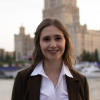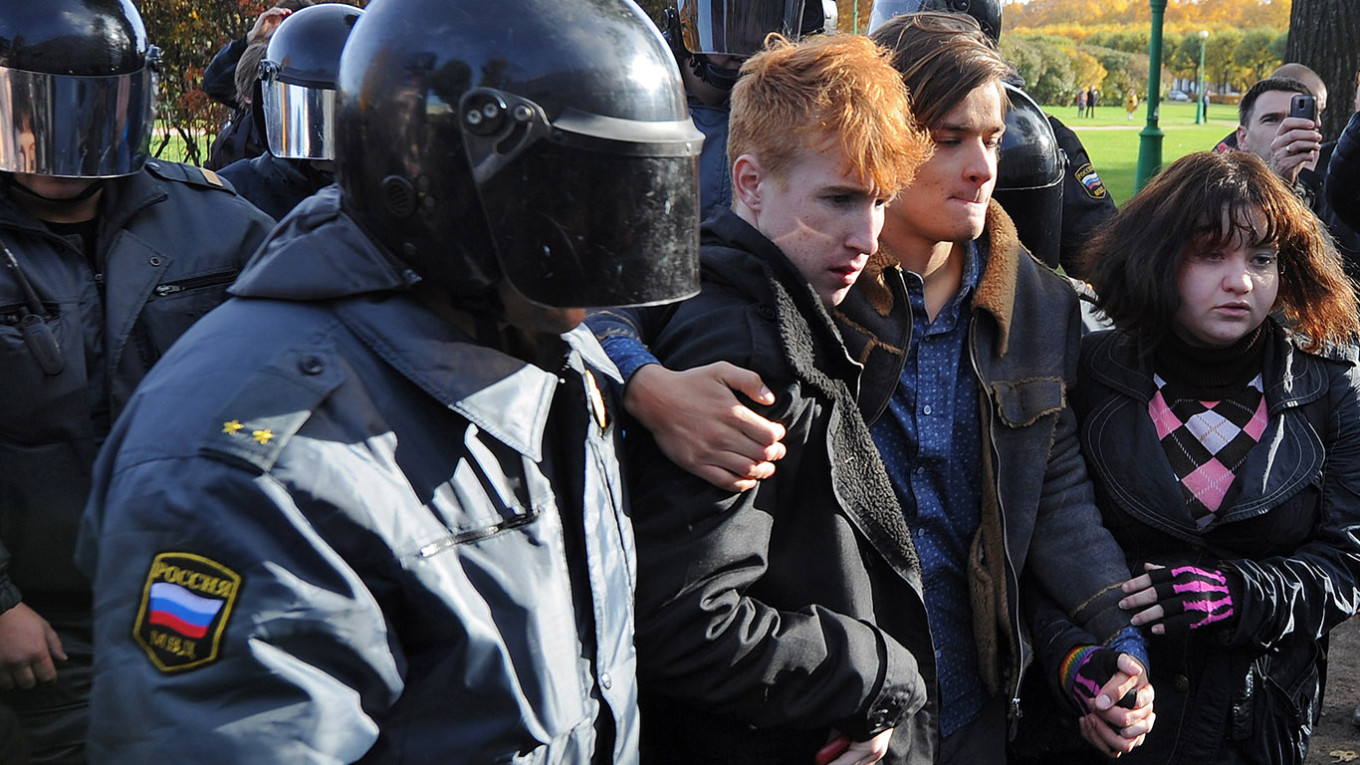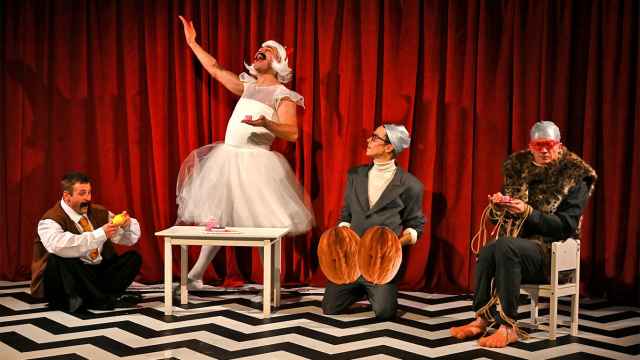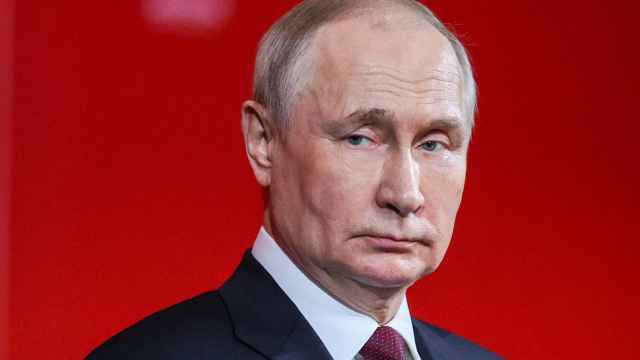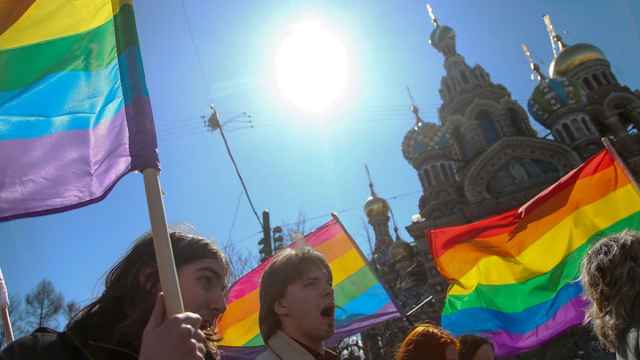In Russia, nobody knows what’s gay enough to get you in trouble.
In a country where queerness has been legally equated to terrorism, the line between what is acceptable and what is not has blurred.
“It is quite difficult to understand what constitutes LGBT propaganda or extremism,” said Valeria Vetoshkina, a lawyer for OVD-Info, Russia’s leading independent human rights watchdog.
Since the full-scale invasion of Ukraine, the Kremlin has intensified its crackdown on LGBTQ+ people under the pretense of promoting “traditional values.” In November 2023, the “international LGBT movement” was labeled as a banned extremist organization, doubling down on an earlier law prohibiting “LGBT propaganda.”
The vague wording of this “extremist” designation allows for a wide spectrum of interpretations.
“Neither the legislation nor the Supreme Court's decision to recognize the so-called ‘international LGBT movement’ as extremist contain clear criteria for classifying this or that activity as prohibited,” Vetoshkina told The Moscow Times.
Russia now ranks as one of Europe’s most dangerous places for LGBTQ+ people. Security services regularly raid gay bars and clubs, and last March, Russia for the first time pressed criminal charges for “LGBT extremism” against gay bar managers. In December 2024, the owner of an LGBTQ+ travel agency was found dead in prison.
LGBTQ+ culture and activism have been forced underground. Many in the LGBTQ+ community have left the country, and those who remain are increasingly demoralized.
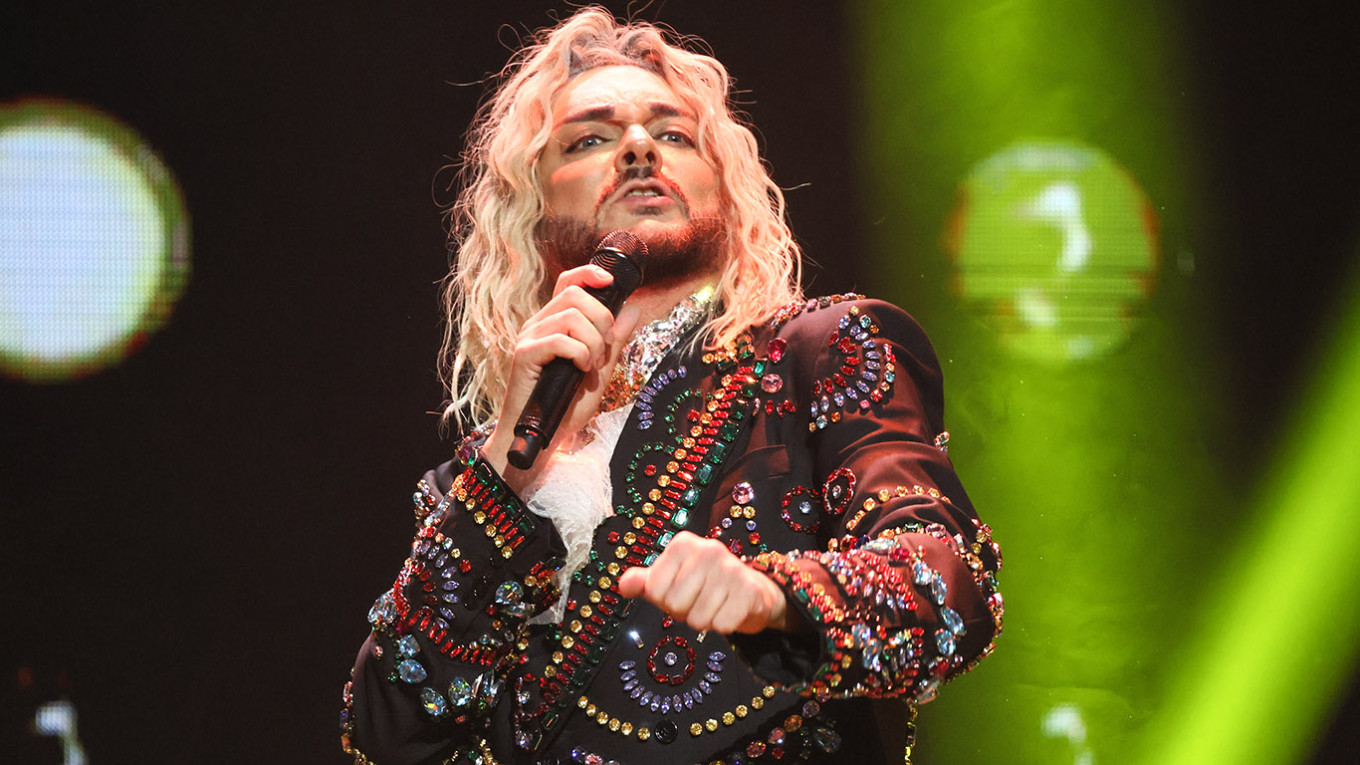
Olga Doletskaya, an anthropologist studying contemporary queer life in Russia at University College London, said LGBTQ+ organizations remaining in Russia have stopped using the term “LGBT” or internationally recognized rainbow symbolism as a way to protect themselves from prosecution.
“It is not entirely clear what is allowed. As with traditional Russian repressions, it is not clear whether it’s self-censorship first or real censorship,” Doletskaya told The Moscow Times.
With the change in nomenclature and uneven enforcement, some LGBTQ+ personalities have been able to maintain a public presence.
Alexei Zhidkovsky, a blogger with 3 million Instagram followers who frequently appears on Russian talk shows, regularly struts forward in a full face of makeup, his hair long and heels high without evident consequence.
He cautiously evades questions about his sexual orientation and personal life.
And Filipp Kirkorov, one of Russia’s most famous pop stars, performs in bright makeup and flamboyant outfits made of feathers and rhinestones, seemingly in defiance of official state policy.
“Regarding Alexei Zhidkovsky and Filipp Kirkorov — well, law enforcement in Russia is very selective; perhaps they specifically have influential acquaintances or friends who protect them,” Vetoshkina told The Moscow Times.
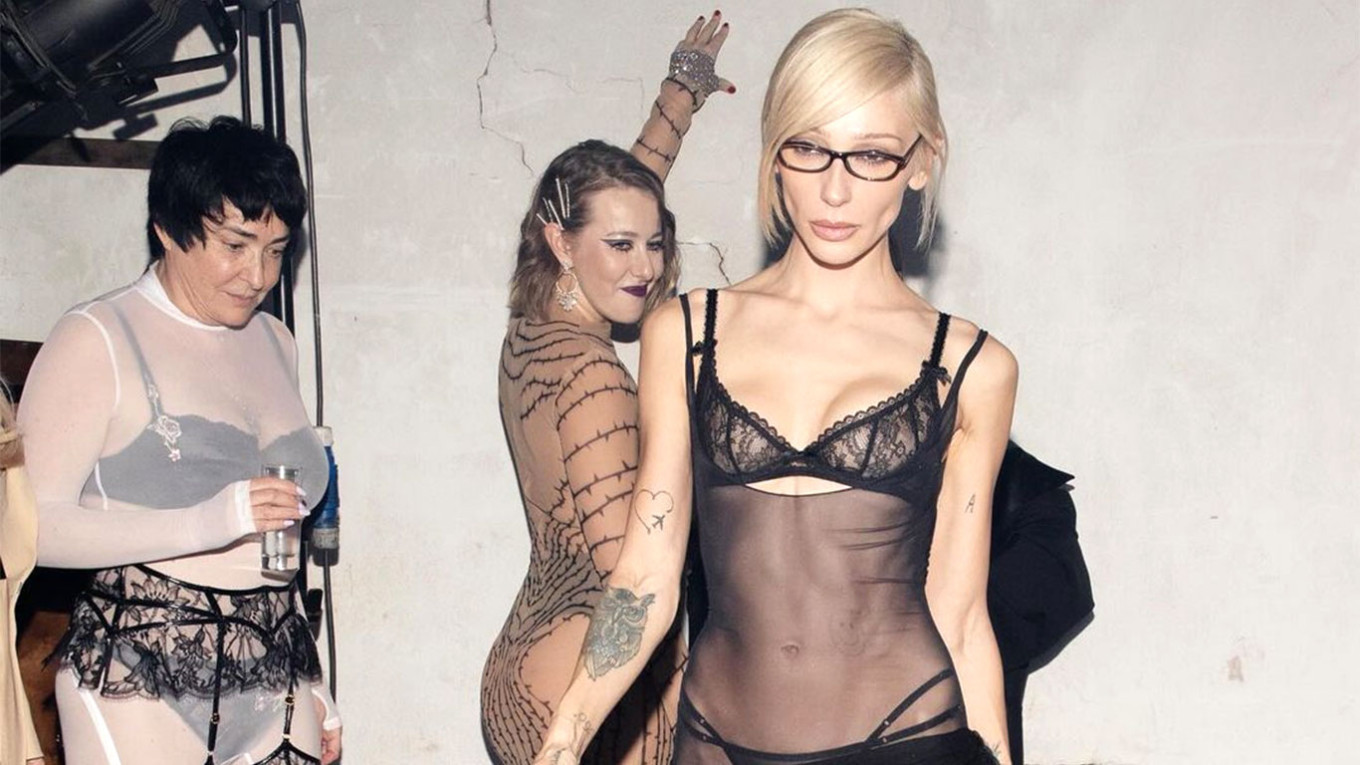
The picture today is very different than in the early 2000s, when Russian pop culture saw a boom in gay culture and gender-bending personalities like Sergei Zverev, Ukrainian pop act Verka Serduchka and Boris Moiseev.
“There was a consumer boom of the late 90s and early 2000s in Russia; gay clubs appeared, Madonna performed in Moscow and we had a bunch of glossy gay magazines and self-published LGBT literature,” Doletskaya told The Moscow Times.
Now, society is again swinging back toward conservatism under the Kremlin’s heavy-handed promotion of “traditional” values.
The leeway once afforded to cultural expression appears to be tightening further following the “nearly naked party” hosted by popular blogger Nastya Ivleeva in late 2023.
The rapper Vacio narrowly escaped a criminal case for “LGBT propaganda” after wearing nothing but a Balenciaga sock on his penis at the now-infamous bash. He was fined 200,000 rubles (around $2,250) and sentenced to 25 days of administrative arrest for the stunt, only to be handed a military draft summons upon his release.
Though Vacio has since left Russia, his arrest sent shockwaves within Moscow’s more flamboyant circles.
“The case with a guy wearing a sock at the almost-naked party is indicative of how the state views LGBT propaganda and views queerness,” Doletskaya told The Moscow Times.
“He was targeted not because he was queer or because he kissed a man, but purely because he looked unacceptable from the point of view of traditional values, and [so] this amounts to LGBT propaganda, and this is quite shocking,” Doletskaya said.
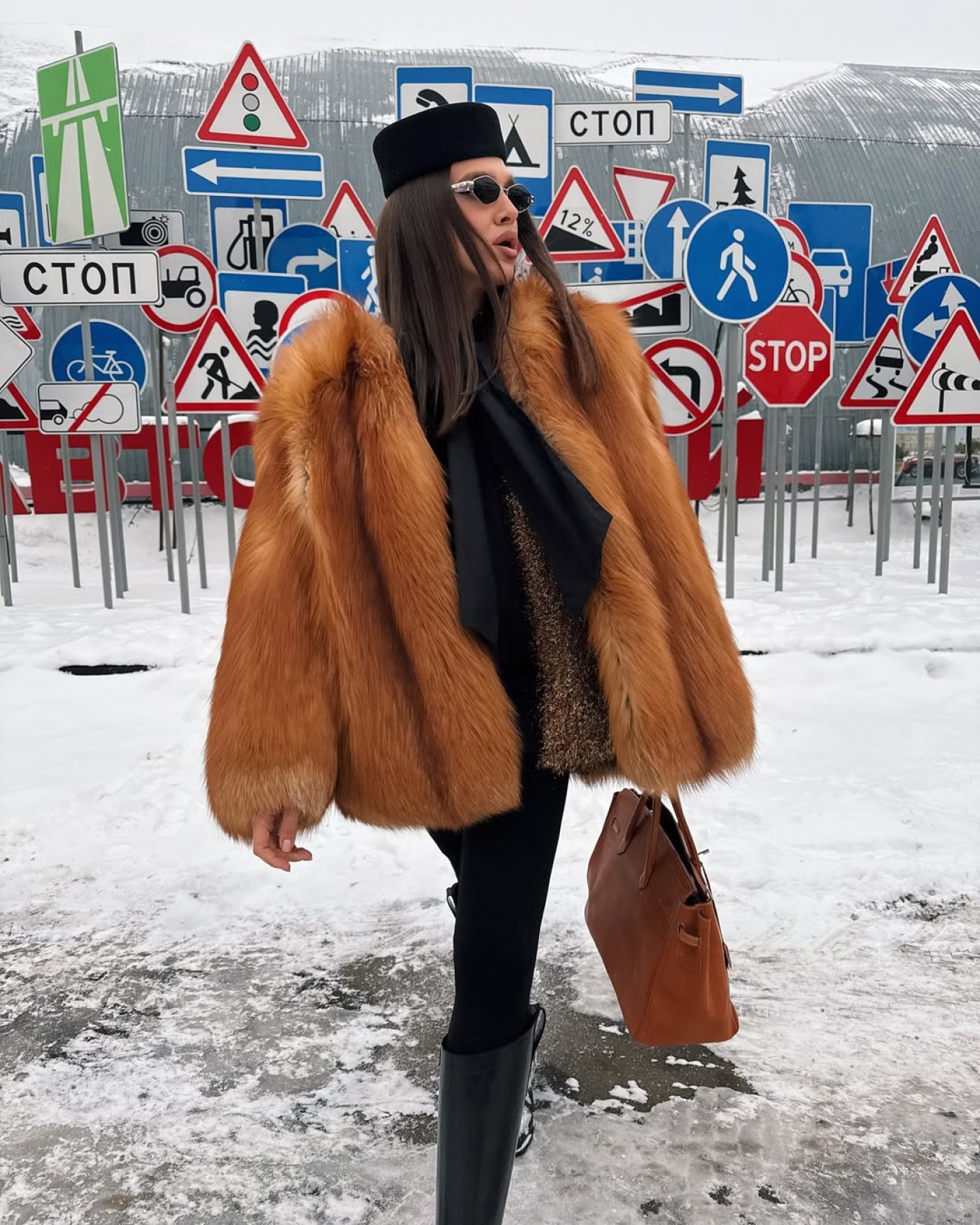
Many of the Russian elites who attended the “almost naked” party lost contracts and sponsorships, while others were forced to publicly embrace Putin’s pro-war agenda with documented trips to the front lines.
But Kirkorov, who was also a guest at the party, appears to have escaped relatively unscathed after he embarked on a public apology tour, including a performance for Russian soldiers in occupied Ukraine.
Vitaly Klimenko, a professional dancer, teaches voguing in Moscow and has choreographed some Russian pop stars. Though the ballroom dance style of voguing originated within the African-American and Latin queer communities, cisgender women dominate the voguing scene in Russia.
Klimenko, who still performs vogue in theatre productions and at private events for Moscow elites, said he has altered his dance style in response to the crackdown.
“Since Ivleeva’s nude party, everyone is being asked to wear modest costumes and cover as much of their body as possible. Whenever I do commercial projects in Russia, I choose costumes very carefully so that everything is decent,” Klimenko told The Moscow Times.
Klimenko travels worldwide with his master classes and notes the stark difference with other vogueing traditions.
“All of Western Europe, America and even Africa have a vogue community, mostly made of men or femme queens. That is, there are very few cis women compared to Eastern Europe and Asia, where vogue is danced mostly by cis women,” Klimenko told The Moscow Times.
Klimenko said he is now also asked to censor movements to make them appear “less gay.”
“Everything is interconnected, and one thing clings to another; movements are getting censored, appearance is censored,” Klimenko said. “But Filipp Kirkorov remains the same.”
A Message from The Moscow Times:
Dear readers,
We are facing unprecedented challenges. Russia's Prosecutor General's Office has designated The Moscow Times as an "undesirable" organization, criminalizing our work and putting our staff at risk of prosecution. This follows our earlier unjust labeling as a "foreign agent."
These actions are direct attempts to silence independent journalism in Russia. The authorities claim our work "discredits the decisions of the Russian leadership." We see things differently: we strive to provide accurate, unbiased reporting on Russia.
We, the journalists of The Moscow Times, refuse to be silenced. But to continue our work, we need your help.
Your support, no matter how small, makes a world of difference. If you can, please support us monthly starting from just $2. It's quick to set up, and every contribution makes a significant impact.
By supporting The Moscow Times, you're defending open, independent journalism in the face of repression. Thank you for standing with us.
Remind me later.

